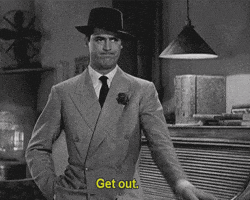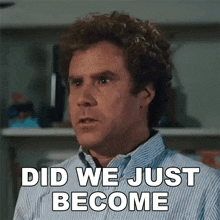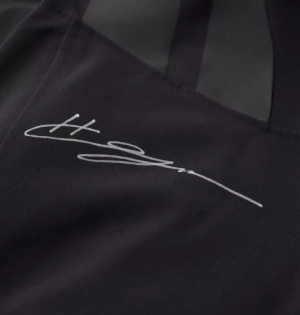JUNE 26, 2017 6:00am PT by Kim Masters
'Star Wars' Firing Reveals a Disturbance in the Franchise
New details emerge from the set of the troubled Han Solo movie (an editor fired, a last-minute acting coach hired) as insiders debate whether problems trace to directors Phil Lord and Chris Miller or if the Disney and Lucasfilm series can accommodate divergent styles.
Matters had already reached a boiling point in mid-June when Phil Lord and Chris Miller, co-directors of the still untitled young Han Solo movie, were in the cockpit of the Millennium Falcon but didn’t start shooting until 1 p.m. That day the two used only three different setups--that is, three variations on camera placement--as opposed to the 12 to 15 that Lucasfilm president Kathleen Kennedy had expected, according to sources with knowledge of the situation. Not only was the going slow but the few angles that had been shot did not provide a wealth of options to use in editing the movie.
This was hardly the first time Kennedy was unhappy with how the film was progressing. And as he looked at dailies from his home in Los Angeles, Lawrence Kasdan - screenwriter, executive producer and keeper of the
Stars Wars flame - also was said to be displeased.
Meanwhile, Lord and Miller, the exceptionally successful team behind
The Lego Movie and
21 Jump Street, were chafing, too, according to a source close to them. There were "deep fundamental philosophical differences" in filmmaking styles, this person says, and the directors felt they were being given "zero creative freedom." They also felt they were being asked to operate under "extreme scheduling constraints" and "were never given enough days for each scene from the very beginning."
Shortly after the shoot in the Millennium Falcon, on June 20, the world learned that Kennedy - with the backing of Disney studio chief Alan Horn - had taken the extraordinary step of
firing Lord and Miller. Obviously, Kennedy knew this would set off a storm of publicity that no one wants or needs in any movie--especially one in the
Star Wars universe, where every move is closely by watched by a gigantic audience with a sense of ownership. It's rare and undesirable enough to fire any director. Firing established players like Lord and Miller, who have a fan base ready to give them the benefit of any doubt? That shocked Hollywood's most seasoned veterans.
Anxious to avoid an outright rupture, Kennedy is said to have made attempts first to support and eventually to supplant Lord and Miller to some degree, as happened with Gareth Edwards on the troubled
Rogue One. In that case, screenwriter Tony Gilroy took on significant duties with the cooperation of Edwards; in this case, sources say, Kennedy attempted to cast Kasdan in that role. Unsurprisingly, Lord and Miller were less accommodating than Edwards, still a novice, had been. Lord and Miller declined to comment, as did Kennedy.
As soon as shooting got underway, insiders say, it started to become clear that Kennedy’s stated intention of hiring directors who would put their own spin on
Star Wars movies had led to a mismatch. Some insiders say that while the talent of Lord and Miller is undeniable, nothing in their background prepared them for a movie of this size and scope. These sources say they relied too heavily on the improvisational style that served them so well in live-action comedy and animation but does not work on a set with hundreds of crew members waiting for direction.
“You have to make decisions much earlier than what they’re used to,” one of these sources says. “I don’t know if it’s because there were two of them but they were not decisive.” Production department heads began to complain. While the pair appeared to listen when told of festering problems, this person says their approach did not change.
But the source close to Lord and Miller acknowledges they have always worked in an improvisational style and not just add comedic elements. "They collaborate closely with their actors and give them creative freedom that, in their experience, brings out the actors' best performances," this person says. "Lawrence Kasdan would not allow this and demanded that every line was said word for word. To appease him and the studio, Lord and Miller would do several takes exactly as written and then shoot additional takes."
Matters were coming to a head in May as the production moved from London to the Canary Islands. Lucasfilm replaced editor Chris Dickens (
Macbeth) with Oscar-winner Pietro Scalia, a veteran of Ridley Scott films including
Alien: Covenant and
The Martian. And, not entirely satisfied with the performance that the directors were eliciting from
Rules Don't Apply star Alden Ehrenreich, Lucasfilm decided to bring in an acting coach. (Hiring a coach is not unusual; hiring one that late in production is.) Lord and Miller suggested writer-director Maggie Kiley, who worked with them on
21 Jump Street.
When Kennedy felt that these measures did not get the production on track, she asked Kasdan to come to London. Kasdan is said also to have been unhappy with the limited shots and displeased that Lord and Miller were calling out lines for the actors to try from behind the monitor rather than sticking with the script that he had written in collaboration with his son. (Lord and Miller had input on the script before shooting began.) “As a writer, producer and part of
Star Wars world, you get on a plane when that happens,” says a person with knowledge of the situation.
But Lord and Miller were not prepared to have Kasdan become a shadow director. With an impasse reached, Kennedy finally pulled the trigger. The next day, when the crew was told that
Ron Howard would take over as director, sources say they broke into applause.
Stepping in to replace directors who have been fired is not something that many filmmakers would want to do. Probably Howard is one of the few who could and would--at least, in this particular set of circumstances. Insiders say he was concerned about how Lord and Miller would react and has been emailing with them; another source says the two have been “very supportive, very elegant.” Howard arrives in London on June 26 and shooting, which began in February and was supposed to be completed in July, now will continue into the first week of September as Howard captures new material. Still, an insider says much of what Lord and Miller shot will be “very usable.”
How credit will be determined is up to the Directors Guild. What will happen next for Lord and Miller isn’t clear but they are in demand and have an open berth waiting for them to direct
The Flash for Warner Bros., if they chose to take it. (They had left that film for the Han Solo movie but could return.)
While Kennedy declined to comment on the episode, just a year ago,
THR did a Q-and-A with her that sheds light on her thinking. Kennedy discussed her belief that within major franchises, it is possible to “take artistic license and creative risks.” She added, “If all you're doing is playing it safe — trying to make the same movie over and over again — that's when the audiences say, `Oh, this is just a moneymaking machine.’ But if it's genuinely in service to the art form, then the franchise concept is being used in a way that's exciting.”
But at the same time, Kennedy--speaking in the context of hiring young, relatively untested directors (as opposed to established filmmakers like Lord and Miller)--said these choices were “instinctual.” And she continued with a statement that seemed, perhaps presciently, to address what may have gone awry on the Han Solo movie: “One of the things I've come to realize since I've been in this position of keeping
Star Wars going is that in addition to looking for somebody who can creatively have an impact, you're really looking for leadership skills. No one steps into these big movies without being able to genuinely lead the charge with hundreds of people and [handle] the relationship with the studio. That's a very difficult thing to do, and you don't know [a person can do] that until you get to spend time and watch somebody operate.”
There are some in the industry who see an emerging pattern suggesting that Kennedy’s appetite for creative license and risk-taking will have to be curbed. Josh Trank was dismissed from the second
Star Wars standalone film before he even started based on problems with
Fantastic Four; Edwards, who conceived of
Rogue One as a dark war film, was shunted aside; and now this. For all the talk of hiring filmmakers with their own vision, observers say Kennedy and Disney may be learning that the franchise is defined by a particular set of parameters. “All of the films have been `troubled,'" says a top executive at a rival studio. “J.J. [Abrams] was powerful enough to push back on an unrealistic start date [for the first movie] but that was a tug of war.
The last one was re-shot by Tony [Gilroy] for months and now this? This is a systemic problem.”
But an insider argues that Rian Johnson (
Looper) shot
Star Wars: The Last Jedi, set for release in December, seamlessly, proving that the right director can execute without major interference from Lucasfilm. The search for new and interesting filmmakers will continue and for many, perhaps, the siren call of
Star Wars will be impossible to resist.
On the Han Solo movie, a high-level insider says Kennedy and Disney "were hoping for a meeting of the minds [with Lord and Miller] that never came." But if had Kennedy fired them earlier, another source says, “People would say, `Why the hell didn’t you try to work it out?’ You’re damned if you do and damned if you don’t.”
 I miss listening to them, even now that Bob is gone. No stations here in Sacramento have them.
I miss listening to them, even now that Bob is gone. No stations here in Sacramento have them. Hoping Hot Toys or someone makes an action figure some day.
Hoping Hot Toys or someone makes an action figure some day.




 love that scene
love that scene


































